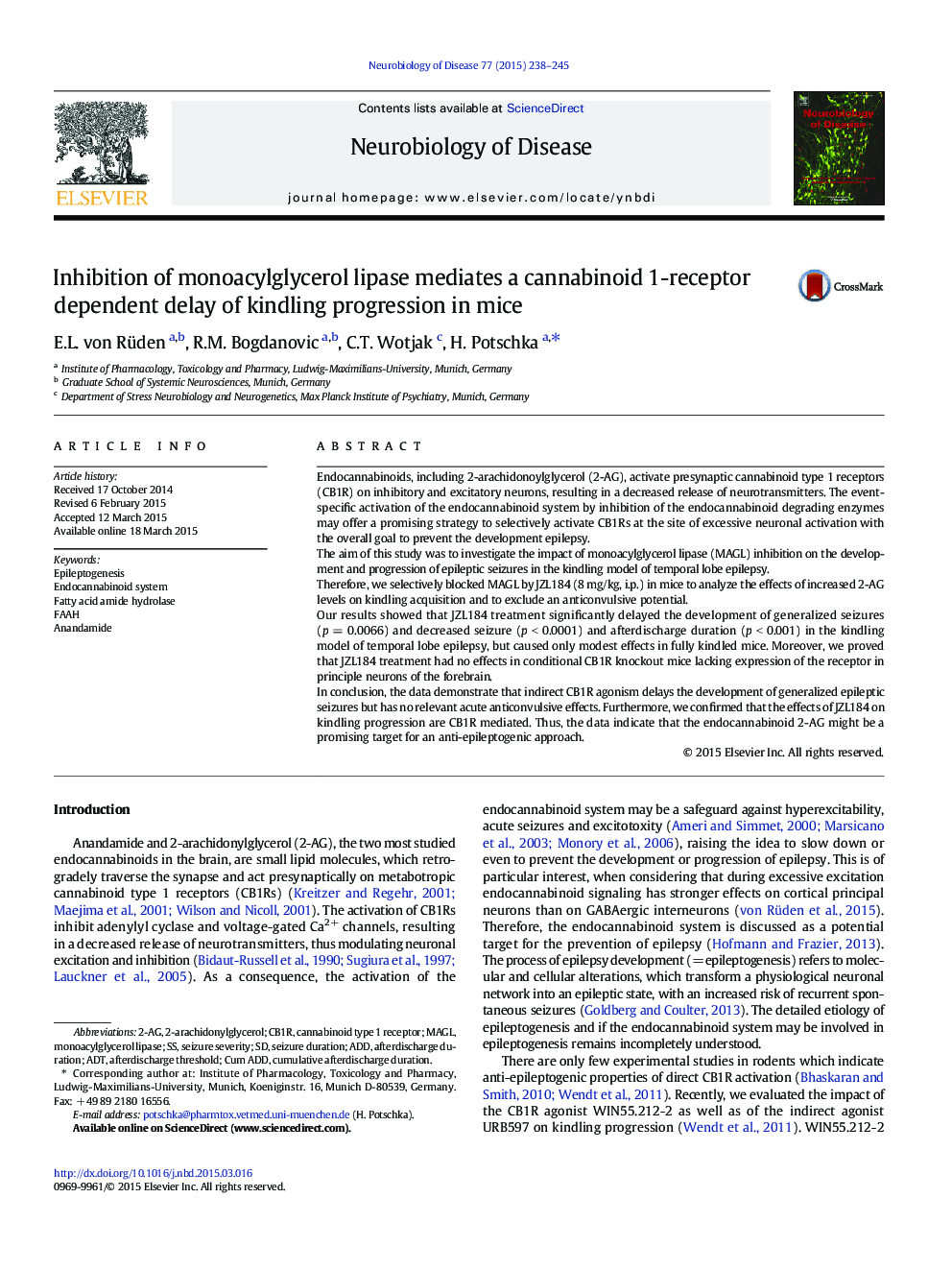| Article ID | Journal | Published Year | Pages | File Type |
|---|---|---|---|---|
| 3069357 | Neurobiology of Disease | 2015 | 8 Pages |
•Evaluation of the event- and side-specific action of CB1Rs.•JZL184 delays the development of generalized seizures.•JZL184 has no anticonvulsive potential.•Effects of JZL184 are dependent on CB1R expression in principle forebrain neurons.
Endocannabinoids, including 2-arachidonoylglycerol (2-AG), activate presynaptic cannabinoid type 1 receptors (CB1R) on inhibitory and excitatory neurons, resulting in a decreased release of neurotransmitters. The event-specific activation of the endocannabinoid system by inhibition of the endocannabinoid degrading enzymes may offer a promising strategy to selectively activate CB1Rs at the site of excessive neuronal activation with the overall goal to prevent the development epilepsy.The aim of this study was to investigate the impact of monoacylglycerol lipase (MAGL) inhibition on the development and progression of epileptic seizures in the kindling model of temporal lobe epilepsy.Therefore, we selectively blocked MAGL by JZL184 (8 mg/kg, i.p.) in mice to analyze the effects of increased 2-AG levels on kindling acquisition and to exclude an anticonvulsive potential.Our results showed that JZL184 treatment significantly delayed the development of generalized seizures (p = 0.0066) and decreased seizure (p < 0.0001) and afterdischarge duration (p < 0.001) in the kindling model of temporal lobe epilepsy, but caused only modest effects in fully kindled mice. Moreover, we proved that JZL184 treatment had no effects in conditional CB1R knockout mice lacking expression of the receptor in principle neurons of the forebrain.In conclusion, the data demonstrate that indirect CB1R agonism delays the development of generalized epileptic seizures but has no relevant acute anticonvulsive effects. Furthermore, we confirmed that the effects of JZL184 on kindling progression are CB1R mediated. Thus, the data indicate that the endocannabinoid 2-AG might be a promising target for an anti-epileptogenic approach.
